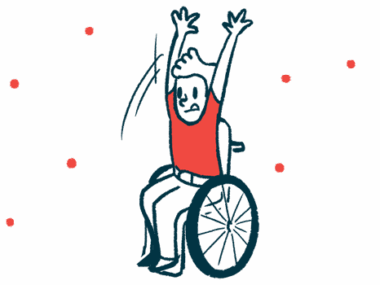The power of musical therapy following a devastating diagnosis
Sometimes the power of music is most evident in the toughest of scenarios
Written by |

“The Sound of Music” isn’t just a beloved movie of mine. Growing up with an extraordinarily gifted musician mother, the sound(s) of music usually graced our lucky home.
In her younger days, Mom performed numerous two-piano classical concerts with her oldest sister. Additionally, she frequently accompanied fellow musicians. Years later, in our music classes for young children, she perfected “making up on the spot” on the keyboard while I ad-libbed my own role.
Mom also taught piano. Once I could read music, our irreplaceable two-piano partnership was born. During our performance years, Broadway and movie tunes, standards, Christmas fare, and the likes of Barbra Streisand remained favorites. We played often at Mom’s music club meetings and were privileged to participate in two noteworthy gigs: providing background dinner music preceding a concert by the Lettermen and accompanying a local high school theater’s production of “Kiss Me, Kate.” Thanks to the incredible versatility of our personal digital grand pianos, we sounded Broadway-bound!
In the fall of 1995, my parents became innkeepers of a newly acquired family lodge on the breathtaking Blue Ridge Parkway; my husband, Randy, and I moved closer to help out. Surrounded by inspiration, Mom created lush improvisations on her new professional keyboard, her fingers working magic whenever they touched the keys.
As impressive as that work was, though, a collection of simple original tunes remained among her favorites. The inspiration for this heartfelt project was her last grandchild, Jeffrey.
A diagnosis
Randy and I married with no debilitating health issues. I learned plenty about other people’s issues, though, during the year I worked as a substitute teacher for students with myriad special needs. Then I spent several years as a kindergarten teacher in a self-contained school for students with orthopedic and other serious conditions.
Our healthy children, Matthew and Katie, were born during my teaching days. I felt more than a twinge of guilt when parents of my students with spina bifida, cerebral palsy, and more asked how my children were doing. Little did I know I’d become one of those parents a few years later.
When our third baby, Jeffrey, was diagnosed with spinal muscular atrophy (SMA), I wasted no time searching for any knowledge about the disease and possible alternative treatments, as well as begging for prayers.
In the midst of a devastating situation, Mom whipped up a collection of soothing original songs for Jeffrey. While her “Dreams for Jeffrey” didn’t prevent SMA from wreaking the ultimate havoc on our sweet baby boy, it definitely eased the journey. Mom was thrilled her gift had made a difference.
A superstar’s devastation … and musical motivation
I believe that disabilities — whether genetic or acquired, and regardless of when they manifest — can benefit in some way from music. In fact, music therapy serves to improve quality of life as much as possible. Although my kindergarten students may not have been able to respond in typical fashion, it was no secret that they loved music time.
Like Jeffrey, all of my students were born with their respective conditions, even if they weren’t diagnosed immediately. In other words, my students grew up not comprehending any other way of life.
What happens, though, when a devastating diagnosis (a rare one, at that) strikes a seemingly healthy adult, especially when the adult in question is a superstar in the entertainment industry?
And what if the entertainer had belted out songs to throngs of adoring fans for over 40 years, only to learn that symptoms of the acquired autoimmune neurological disease are triggered by the very stimuli necessarily associated with performances?
A soul sister of mine, Cindy Schaefer, who’s the mother of Bionews’ Kevin Schaefer, urged me to watch a new documentary on Amazon Prime called “I Am: Celine Dion.”
Hoo boy.
Dion first experienced issues with her voice while on tour in 2008. Specialists found nothing questionable with her vocal cords, so under the influence of enough Valium (diazepam) to be potentially fatal, she pushed herself to perform. Stiff muscles and difficulty with walking and balance came next.
Seeking answers in 2020, Dion received one: stiff person syndrome (SPS), a rare, acquired neurological condition that affects only one or two people per million. There is currently no cure.
The powerfully poignant documentary showcases Dion’s extraordinarily formidable voice and phenomenal energy, along with her passion for performing and dogged determination to do whatever it took to get herself back on stage — stressors or not. If you want to witness true grit, stay to the end.
Loss and therapy
I fully appreciate Dion’s despondency at being unable to use her musical gift. As my mother’s vision declined, so did the opportunities for us to play together for our own enjoyment. Grief ensued.
I haven’t had the pleasure of playing with Mom for a few years now. Thanks to my brother’s laborious efforts, though, I’m enjoying her music (and ours) on my computer.
Music therapy at its best.
Note: SMA News Today is strictly a news and information website about the disease. It does not provide medical advice, diagnosis, or treatment. This content is not intended to be a substitute for professional medical advice, diagnosis, or treatment. Always seek the advice of your physician or other qualified health provider with any questions you may have regarding a medical condition. Never disregard professional medical advice or delay in seeking it because of something you have read on this website. The opinions expressed in this column are not those of SMA News Today or its parent company, Bionews, and are intended to spark discussion about issues pertaining to spinal muscular atrophy.





Leave a comment
Fill in the required fields to post. Your email address will not be published.